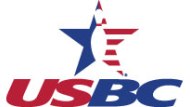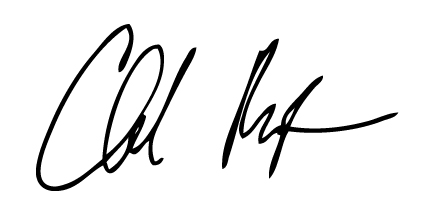USBC gives more information on approval revocation of two Motiv balls
March 24, 2016

By Chad Murphy
USBC Executive Director
In light of recent public statements on the topic, I want to take this opportunity to provide some of the background regarding USBC’s decision to revoke its approval of two Motiv brand bowling balls. This won’t be a Q&A session so I will not be responding to comments as I have on occasion in the past.
To begin, I want to acknowledge Motiv’s Silver-level sponsorship of USBC. The Motiv brand is a registered product on both the PBA and PWBA Tours. They have been good partners of bowling and we have always worked diligently to be good partners with them in return.
USBC first contacted Motiv on February 26 and notified them about the specification issue. This was more than two weeks before the revocation decision was announced. Statements suggesting that USBC had not communicated with Motiv, or that its decision was intended to blindside them without warning, simply are not true.
USBC’s responsibility to the sport in this situation is clear. We are the National Governing Body for bowling. Part of our role in that capacity is to provide a level playing field for all the equipment used at USBC certified events. We do this through uniform and transparent specifications. When a product exceeds one or more of those specifications, a risk of competitive imbalance occurs both for manufacturers and bowlers alike. This is where USBC must step in. Indeed, this is why sports like bowling have a National Governing Body.
Our spot checking test process is straightforward and described in detail in the USBC Equipment Specifications and Certifications Manual. USBC periodically obtains ball samples through the normal chains of distribution and they are tested. When there is a concern, the number of balls tested is statistically significant. Here, many Jackal and Jackal Carnage balls were obtained from distribution points across the country and tested. USBC took the additional step of consulting with an independent Six Sigma "black belt" with expertise in manufacturing variance in order to confirm the sample size of the balls we were testing was an accurate representation of these products on the overall market.
The specification rules in the USBC Equipment Specifications and Certifications Manual state: The maximum differential radius of gyration standard specification is 0.060". The maximum percentage of non-conforming balls USBC will allow in the manufacturing process for approval is 0.6%.
Prior to its most recent news release, Motiv had publically acknowledged that our USBC spot check tests showed, “There was an average differential of .0604 on the Jackal Carnage and .0616 on the original Jackal.” While this is true, it is not the only relevant data point. The percentage of balls on the market that are out of compliance also must be considered. Based upon USBC’s testing, the percentage of non-conforming balls exceeded the 0.6% standard.
As noted above, USBC shared this data with Motiv before announcing the revocation of approval for the two balls in issue. In my personal conversations with Motiv, no one ever questioned the validity of USBC’s data or claimed that our specifications were in any way unclear. In the past, USBC has stated in writings to Motiv and to other manufacturers: “Balls that are found to be outside of USBC specifications will result in the approval status of that ball being revoked.”
Thus, given our testing results and the clear specification parameters in our written policy, USBC’s responsibility to the sport of bowling is clear. As a National Governing Body we have a duty to enforce the rules of the sport as stated. Because an unacceptably high number of the Jackal and Jackal Carnage balls exceed the allowable maximum differential radius of gyration standard specification, their approval status has been revoked.
Motiv then published an official statement on its website taking a very different tone than its representatives did in my personal conversations with them about this issue. They state: “We believe that both balls should be reinstated on the USBC Approved Ball List, and we are reaching out to the USBC to have meaningful, effective dialogue to resolve this matter together in a manner that is best for all those affected by the USBC's decision and ruling, especially you the bowlers, pro shops, bowling alleys, and enthusiasts.”
USBC is open to a dialogue with Motiv, but our decision here was driven by data, not dialogue. Absent valid data to the contrary, there is no basis upon which USBC’s policies or rules contemplate reinstatement of approval for these balls. The data indicating an unacceptably high percentage of the balls are non-compliant, determines the outcome.
In closing, I remind everyone of USBC’s responsibility here. It is found in our mission statement: “The USBC is the National Governing Body for bowling. Our mission is to provide services, resources and standards for the sport.” When our standards have been exceeded, we have a duty to act. And that is exactly what we have done here.

Chad Murphy
USBC Executive Director
Click here for March 15 news release.
USBC Executive Director
In light of recent public statements on the topic, I want to take this opportunity to provide some of the background regarding USBC’s decision to revoke its approval of two Motiv brand bowling balls. This won’t be a Q&A session so I will not be responding to comments as I have on occasion in the past.
To begin, I want to acknowledge Motiv’s Silver-level sponsorship of USBC. The Motiv brand is a registered product on both the PBA and PWBA Tours. They have been good partners of bowling and we have always worked diligently to be good partners with them in return.
USBC first contacted Motiv on February 26 and notified them about the specification issue. This was more than two weeks before the revocation decision was announced. Statements suggesting that USBC had not communicated with Motiv, or that its decision was intended to blindside them without warning, simply are not true.
USBC’s responsibility to the sport in this situation is clear. We are the National Governing Body for bowling. Part of our role in that capacity is to provide a level playing field for all the equipment used at USBC certified events. We do this through uniform and transparent specifications. When a product exceeds one or more of those specifications, a risk of competitive imbalance occurs both for manufacturers and bowlers alike. This is where USBC must step in. Indeed, this is why sports like bowling have a National Governing Body.
Our spot checking test process is straightforward and described in detail in the USBC Equipment Specifications and Certifications Manual. USBC periodically obtains ball samples through the normal chains of distribution and they are tested. When there is a concern, the number of balls tested is statistically significant. Here, many Jackal and Jackal Carnage balls were obtained from distribution points across the country and tested. USBC took the additional step of consulting with an independent Six Sigma "black belt" with expertise in manufacturing variance in order to confirm the sample size of the balls we were testing was an accurate representation of these products on the overall market.
The specification rules in the USBC Equipment Specifications and Certifications Manual state: The maximum differential radius of gyration standard specification is 0.060". The maximum percentage of non-conforming balls USBC will allow in the manufacturing process for approval is 0.6%.
Prior to its most recent news release, Motiv had publically acknowledged that our USBC spot check tests showed, “There was an average differential of .0604 on the Jackal Carnage and .0616 on the original Jackal.” While this is true, it is not the only relevant data point. The percentage of balls on the market that are out of compliance also must be considered. Based upon USBC’s testing, the percentage of non-conforming balls exceeded the 0.6% standard.
As noted above, USBC shared this data with Motiv before announcing the revocation of approval for the two balls in issue. In my personal conversations with Motiv, no one ever questioned the validity of USBC’s data or claimed that our specifications were in any way unclear. In the past, USBC has stated in writings to Motiv and to other manufacturers: “Balls that are found to be outside of USBC specifications will result in the approval status of that ball being revoked.”
Thus, given our testing results and the clear specification parameters in our written policy, USBC’s responsibility to the sport of bowling is clear. As a National Governing Body we have a duty to enforce the rules of the sport as stated. Because an unacceptably high number of the Jackal and Jackal Carnage balls exceed the allowable maximum differential radius of gyration standard specification, their approval status has been revoked.
Motiv then published an official statement on its website taking a very different tone than its representatives did in my personal conversations with them about this issue. They state: “We believe that both balls should be reinstated on the USBC Approved Ball List, and we are reaching out to the USBC to have meaningful, effective dialogue to resolve this matter together in a manner that is best for all those affected by the USBC's decision and ruling, especially you the bowlers, pro shops, bowling alleys, and enthusiasts.”
USBC is open to a dialogue with Motiv, but our decision here was driven by data, not dialogue. Absent valid data to the contrary, there is no basis upon which USBC’s policies or rules contemplate reinstatement of approval for these balls. The data indicating an unacceptably high percentage of the balls are non-compliant, determines the outcome.
In closing, I remind everyone of USBC’s responsibility here. It is found in our mission statement: “The USBC is the National Governing Body for bowling. Our mission is to provide services, resources and standards for the sport.” When our standards have been exceeded, we have a duty to act. And that is exactly what we have done here.

Chad Murphy
USBC Executive Director
Click here for March 15 news release.





